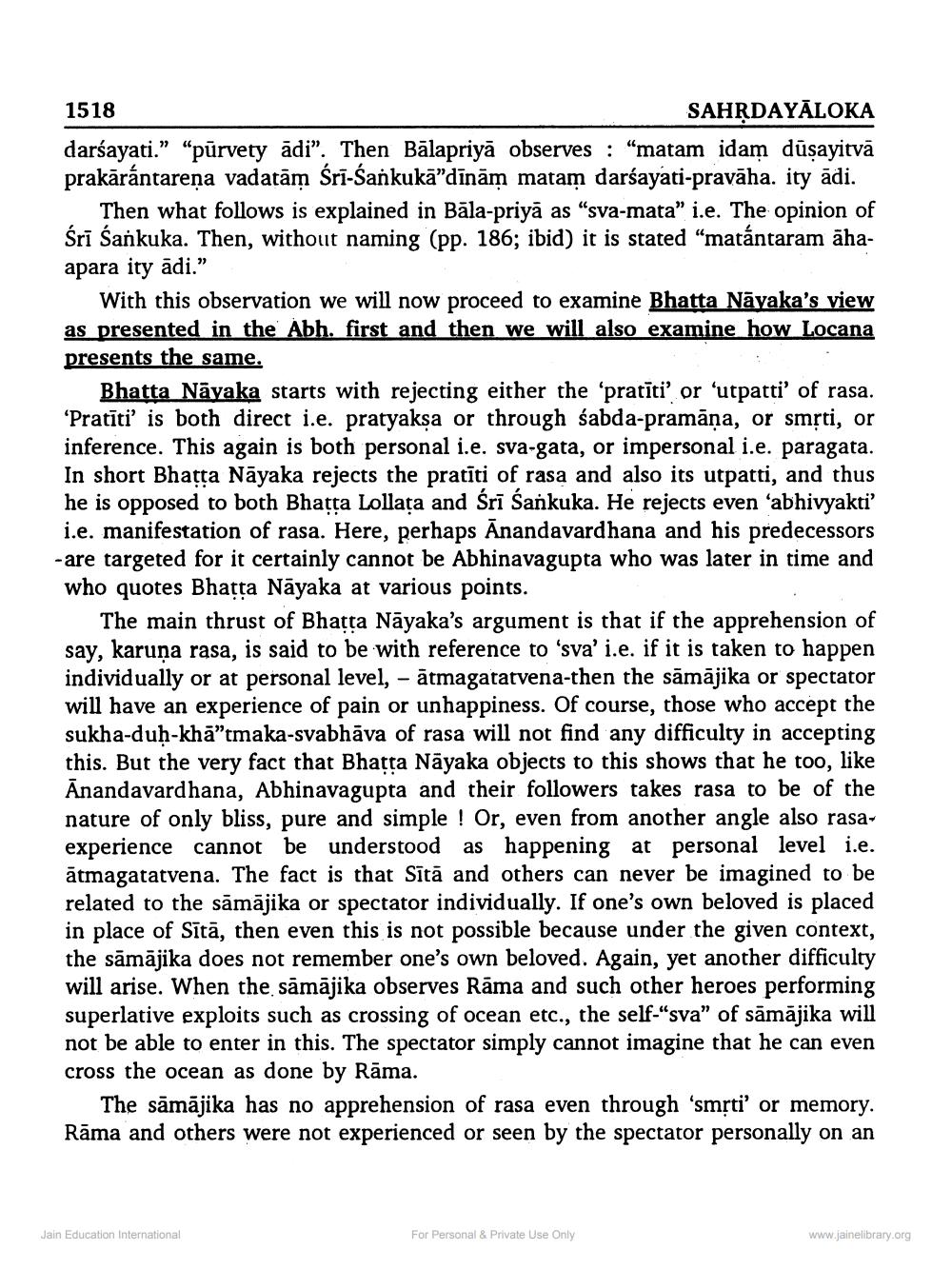________________
1518
SAHRDAYĀLOKA darśayati.” “pūrvety ādi”. Then Bālapriyā observes : “matam idam dūsayitvā prakārántareņa vadatām Śrī-Sankukā”dīnām matam darśayati-pravāha. ity ādi.
Then what follows is explained in Bala-priyā as "sva-mata" i.e. The opinion of Śrī Sankuka. Then, without naming (pp. 186; ibid) it is stated "matántaram āhaapara ity ādi.”
With this observation we will now proceed to examine Bhatta Nāyaka's view as presented in the Abh. first and then we will also examine how Locana presents the same.
Bhatta Nāvaka starts with rejecting either the 'pratīti' or 'utpatti' of rasa. ‘Pratīti' is both direct i.e. pratyakṣa or through sabda-pramāna, or smrti, or inference. This again is both personal i.e. sva-gata, or impersonal i.e. paragata. In short Bhatta Nāyaka rejects the pratiti of rasa and also its utpatti, and thus he is opposed to both Bhatta Lollata and Sri Sankuka. He rejects even 'abhivyakti' i.e. manifestation of rasa. Here, perhaps Anandavardhana and his predecessors -are targeted for it certainly cannot be Abhinavagupta who was later in time and who quotes Bhatta Nāyaka at various points.
The main thrust of Bhatta Nāyaka's argument is that if the apprehension of say, karuna rasa, is said to be with reference to 'sva' i.e. if it is taken to happen individually or at personal level, - ātmagatarvena-then the sāmājika or spectator will have an experience of pain or unhappiness. Of course, those who accept the sukha-duh-khā"tmaka-svabhāva of rasa will not find any difficulty in accepting this. But the very fact that Bhatta Näyaka objects to this shows that he too, like Anandavardhana, Abhinavagupta and their followers takes rasa to be of the nature of only bliss, pure and simple ! Or, even from another angle also rasaexperience cannot be understood as happening at personal level i.e. ātmagatatvena. The fact is that Sītā and others can never be imagined to be related to the sāmājika or spectator individually. If one's own beloved is placed in place of Sītā, then even this is not possible because under the given context, the sāmājika does not remember one's own beloved. Again, yet another difficulty will arise. When the sāmājika observes Rāma and such other heroes performing superlative exploits such as crossing of ocean etc., the self-"sva" of sāmājika will not be able to enter in this. The spectator simply cannot imagine that he can even cross the ocean as done by Rāma.
The sāmājika has no apprehension of rasa even through 'smrti' or memory. Rāma and others were not experienced or seen by the spectator personally on an
Jain Education International
For Personal & Private Use Only
www.jainelibrary.org




